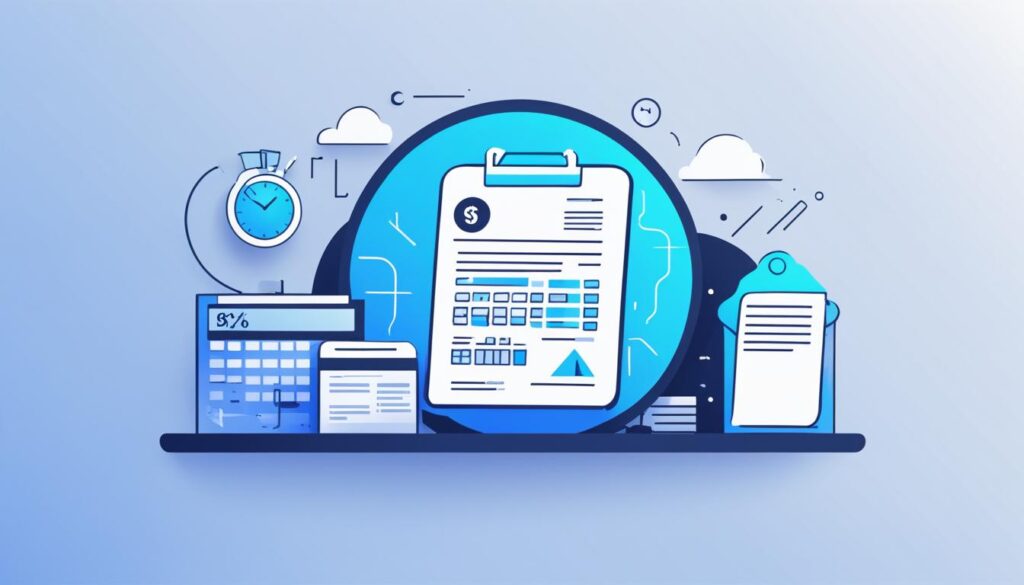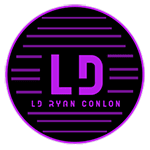Welcome to our comprehensive guide on freelance stage lighting tech taxes. As a freelance stage lighting technician, you face unique tax obligations as a self-employed individual. Understanding and managing these tax requirements is essential for effectively handling your finances.
In this article, we will simplify the process of navigating freelance stage lighting technician taxes. We will provide key insights on tax deductions and offer valuable tips specifically tailored to freelance stage lighting techs. Whether you’re new to the industry or a seasoned professional, this guide will help you stay compliant and maximize your tax savings.
Ready to demystify the world of freelance stage lighting tech taxes? Let’s dive in and gain the knowledge you need to confidently manage your tax obligations.
The Role of a Freelance Lighting Technician
Freelance lighting technicians play a vital role in the world of stage productions, concerts, and events. As a self-employed individual, you not only bring creativity and technical expertise to the table but also bear the responsibility of managing your own taxes and running your lighting business efficiently.
Working on a contract basis, you have the opportunity to collaborate with different production teams, bringing your skills and artistic vision to a diverse range of projects. Whether it’s designing lighting schemes, programming lighting consoles, or operating lighting equipment during live performances, your contributions significantly impact the overall atmosphere and success of the event.
To excel in your role as a freelance lighting technician, you need to possess a combination of technical knowledge, artistic sensibility, and strong problem-solving skills. Your ability to understand the artistic vision of the client and transform it into impactful lighting design sets you apart in this competitive industry.
While honing your craft is important, it is equally crucial to develop discipline in managing your personal finances. As a self-employed individual, you are not only responsible for the creative aspects of your work but also for handling the financial aspects of your business. This means ensuring accurate record-keeping, effective budgeting, and maximizing tax deductions.
Image:
In the next sections, we will delve deeper into the specific tax obligations and tips for self-employed lighting technicians. We will explore tax deductions, provide insights on setting appropriate rates, and discuss the importance of maintaining financial discipline in order to succeed in this dynamic industry.
Determining Hourly Rates and Equipment Charges
Setting the right rates for your stage lighting services and equipment is crucial as a freelance stage lighting tech. To ensure you are properly compensated for your expertise and equipment usage, follow these guidelines.
Determining Hourly Rates
When determining your hourly rate as a freelance stage lighting tech, consider the following factors:
- Your level of experience and expertise in the industry
- The complexity and scale of the lighting project
- The location and duration of the gig
Take into account your skill level and the demand for your services in the market. It’s important to strike a balance between competitive pricing and ensuring fair compensation for your time and expertise.
Charging for Equipment Usage
If you own stage lighting equipment, it is essential to charge for its usage. This helps cover the costs of maintenance, repairs, and investing in new equipment when needed. Here’s a breakdown of how equipment charges can be structured:
| Equipment Type | Hourly Rate |
|---|---|
| Stage Lighting Console | $X/hour |
| Intelligent Lighting Fixtures | $X/hour |
| DMX Controllers and Cables | $X/hour |
Note: The rates provided are for illustrative purposes only. Prices will vary depending on market demand and equipment value.
Tax Deductions and Write-offs
As a stage lighting freelancer, you may be eligible for various tax deductions and write-offs. Consult with a tax professional to ensure you are taking advantage of all applicable deductions, such as:
- Business-related travel expenses
- Equipment purchases and maintenance costs
- Education and training expenses
- Professional association fees
- Home office expenses
By accurately tracking and documenting these expenses, you can potentially reduce your tax liability and maximize your tax write-offs.
Next, we will explore the importance of having contracts in place as a freelance lighting tech and provide insights into industry-standard contract templates in the stage lighting industry.
Contracts for Freelance Lighting Techs
Freelance lighting techs often work on a contract basis, and having a solid agreement in place is crucial for protecting your interests and establishing clear expectations. In the dynamic world of stage lighting, contracts provide the foundation for smooth collaborations between techs, production companies, and clients. Whether you’re taking on a short-term gig or committing to a long-term project, a well-crafted contract can protect your rights, ensure fair compensation, and minimize potential disputes.
Why Contracts Matter
Contracts serve as legal documents that outline the terms and conditions of the working relationship. By clearly defining responsibilities, payment terms, equipment usage, and intellectual property rights, both parties can avoid misunderstandings and address any potential issues in advance. Contracts enable you to establish your status as an independent contractor, providing documentation that can support your tax planning and independent contractor classification.
Moreover, contracts provide a level of professionalism and credibility, instilling confidence in your clients and collaborators. A comprehensive contract demonstrates your commitment to delivering high-quality work and ensures that the project runs smoothly from start to finish.
Key Elements in a Lighting Tech Contract
A lighting tech contract should include the following key elements:
- Clearly defined scope of work: Outline the specific lighting tasks and services you will provide, including load-in, programming, and equipment operation.
- Compensation and payment terms: Specify your hourly rate, project-based fees, or any other agreed-upon compensation structure. Detail how and when payments will be made, including any necessary invoices and payment schedules.
- Equipment usage and responsibility: Clearly define who is responsible for providing and maintaining the required lighting equipment. Discuss liability and insurance coverage in case of any equipment damage or loss.
- Intellectual property rights: Address ownership and usage rights for any lighting designs, programming, or other creative contributions. Clarify if you retain ownership or if rights are transferred upon completion of the project.
- Termination and cancellation policies: Establish procedures for terminating the contract or resolving disagreements between parties. Include any cancellation fees or penalties if the project is halted before completion.
- Confidentiality and non-disclosure agreements: If necessary, include clauses that protect sensitive information and trade secrets.
While these elements are essential, it’s important to consult with an attorney or legal professional to ensure your contract adequately addresses your specific needs and the laws in your jurisdiction.
Industry-Standard Contract Templates
Creating a lighting tech contract from scratch can be overwhelming, especially if you’re new to freelancing. Fortunately, there are industry-standard contract templates available that can be customized to suit your needs. These templates are designed with the unique requirements of lighting techs in mind, providing a solid framework for building your contract. Here are a few reputable sources for contract templates:
| Source | Description |
|---|---|
| USITT (United States Institute for Theatre Technology) | USITT offers a range of contract resources for lighting professionals, including templates that cover various aspects of the job. |
| STLD (Society of Television Lighting Directors) | The STLD provides comprehensive contract templates specifically tailored to freelance lighting technicians working in television and broadcasting. |
| Local Entertainment Lawyers | Hiring an entertainment lawyer in your area can give you access to industry-specific legal expertise, ensuring that your contract fully encompasses your rights and responsibilities. |
Remember, while using contract templates can save time and provide a solid starting point, it’s crucial to review and customize the contract to match the specific requirements and nuances of each project.
Advantages and Disadvantages of Freelance Work
Freelance work offers a range of advantages and disadvantages for stage lighting technicians. Let’s explore the benefits and challenges that come with freelancing in the stage lighting industry.
Advantages
- Flexibility: As a freelance lighting technician, you have the freedom to choose your projects and work schedule. You can take on gigs that align with your interests and availability, allowing for a more balanced work-life integration.
- Travel Opportunities: Freelancing offers the chance to work on diverse projects, which may require traveling to different locations. This can provide exciting opportunities to explore new places and work with various artists and production teams.
- Professional Independence: Freelance work allows you to have more control over your career. You can build your own brand, set your rates, and make business decisions that align with your goals and values.
Disadvantages
- Uncertainty of Finding Consistent Work: Freelancing in the stage lighting industry can come with fluctuating demand, making it challenging to secure consistent work. It’s important to be proactive in networking, marketing your services, and maintaining a strong professional reputation.
- Constant Preparedness: As a freelance lighting technician, you must always be prepared for potential gigs. This means being flexible with your schedule, continuously updating your skills, and maintaining a reliable network of industry contacts.
- Variable Income: Freelance work often comes with an irregular income stream, with some months being more financially rewarding than others. It requires effective budgeting and financial management to navigate through lean periods.
Understanding the advantages and disadvantages of freelance work can help you make informed decisions regarding your career as a stage lighting technician.
| Advantages of Freelance Work | Disadvantages of Freelance Work |
|---|---|
| Flexibility | Uncertainty of Finding Consistent Work |
| Travel Opportunities | Constant Preparedness |
| Professional Independence | Variable Income |

Managing Freelance Finances
Properly managing your finances as a freelance stage lighting tech is crucial for long-term success. By implementing effective financial strategies, you can ensure that your business thrives while also meeting your tax obligations.
1. Budgeting
Creating a budget is a fundamental step in managing your freelance finances. It allows you to track your income and expenses, stay organized, and plan for future financial goals. Start by assessing your average monthly income and determining fixed expenses such as equipment maintenance, transportation, and licensing fees. Allocate a portion of your income for taxes and save for emergencies. Remember to periodically review and adjust your budget as needed.
2. Tracking Business Expenses
As a freelance stage lighting tech, it’s essential to track your business expenses accurately. Keep detailed records of all purchases related to your work, including equipment, transportation costs, professional development courses, and office supplies. By documenting these expenses, you’ll have a comprehensive overview and be better prepared for tax deductions.
3. Maximizing Tax Deductions
Take advantage of tax deductions available to stage lighting technicians. Common deductions include equipment depreciation, professional organization memberships, travel expenses for gigs, and home office deductions. By working closely with a tax advisor or using tax software designed for freelancers, you can ensure that you maximize your deductions and reduce your taxable income.
4. Reliable Accounting System
Having a reliable accounting system in place is vital for managing your freelance finances effectively. Consider using accounting software specifically tailored for freelancers to streamline your invoicing, expense tracking, and financial reporting. This will help you maintain accurate records, easily generate financial statements when needed, and ensure smooth tax filings.
With the right financial strategies in place, managing your freelance finances can be a seamless process. By budgeting, tracking business expenses, maximizing tax deductions, and utilizing a reliable accounting system, you can stay on top of your finances and focus on what you do best – creating unforgettable lighting experiences.
Understanding Self-Employment Taxes
As a self-employed lighting technician, it’s crucial to have a clear understanding of self-employment taxes. Unlike traditional employees who have taxes withheld from their paychecks, self-employed individuals are responsible for paying their own taxes directly to the Internal Revenue Service (IRS).
Self-employment taxes are calculated based on your net earnings from self-employment, which include income from your lighting technician services. These taxes are used to fund Social Security and Medicare programs.
Self-Employment Tax Rates
The self-employment tax rate for 2021 is 15.3% of your net earnings, consisting of 12.4% for Social Security and 2.9% for Medicare. However, you are only responsible for paying the self-employment tax on self-employed income up to a certain threshold.
It’s important to note that the self-employment tax is in addition to your regular income tax. As a self-employed individual, you’ll need to account for both taxes when calculating your overall tax liability.
Stage Lighting Technician Tax Deductions
One of the advantages of being self-employed is the ability to take advantage of various tax deductions. These deductions can help lower your overall tax liability and keep more money in your pocket.
As a stage lighting technician, there are several tax deductions you may be eligible for, including:
- Equipment expenses: Deducting the cost of purchasing or renting lighting equipment, such as fixtures, cables, and consoles.
- Business travel expenses: Deducting travel-related expenses when traveling for work, including transportation, meals, and lodging.
- Home office expenses: Deducting a portion of your rent or mortgage, utilities, and other home office expenses if you have a dedicated space for your lighting technician business.
- Professional development expenses: Deducting the cost of workshops, training courses, and industry conferences to enhance your skills as a lighting technician.
Keep in mind that tax laws can be complex, and it’s essential to consult with a tax professional who specializes in self-employment taxes to ensure you’re maximizing your deductions while remaining compliant with IRS regulations.
| Tax Deduction | Description |
|---|---|
| Equipment expenses | Deducting the cost of purchasing or renting lighting equipment, such as fixtures, cables, and consoles. |
| Business travel expenses | Deducting travel-related expenses when traveling for work, including transportation, meals, and lodging. |
| Home office expenses | Deducting a portion of your rent or mortgage, utilities, and other home office expenses if you have a dedicated space for your lighting technician business. |
| Professional development expenses | Deducting the cost of workshops, training courses, and industry conferences to enhance your skills as a lighting technician. |
Note: This table provides a summary of potential tax deductions for stage lighting technicians. Consult with a tax professional for specific guidance.
Understanding self-employment taxes and the available deductions for stage lighting technicians is essential to effectively manage your tax obligations. By staying informed and utilizing these deductions, you can minimize your tax liability and maximize your financial benefits as a self-employed lighting technician.
Utilizing Tax Calculators and Tools
When it comes to managing your tax obligations as a freelance lighting technician, utilizing tax calculators and tools can be a game-changer. These resources can simplify the process of estimating your tax liabilities and help you maximize your deductions. In this section, we will introduce a freelance income tax calculator designed specifically for self-employed individuals and discuss the benefits of using accounting apps to track business expenses.
Estimating Your Tax Obligations with a Freelance Income Tax Calculator
Estimating your tax obligations as a freelance lighting technician can be challenging, as your income may fluctuate from project to project. However, a freelance income tax calculator can help you get a clear understanding of your tax liabilities based on your projected earnings.
| Benefits of a Freelance Income Tax Calculator: |
|---|
| Accurate tax estimations based on your projected income |
| Clear breakdown of tax deductions and write-offs specific to stage lighting freelancers |
| Helps you plan your finances and set aside money for tax payments |
| Reduces the risk of underestimating or overestimating your tax liabilities |
Tracking Business Expenses with Accounting Apps
In addition to using a freelance income tax calculator, accounting apps can be incredibly useful for freelance lighting technicians. These apps help you track your business expenses, ensuring you capture all potential deductions and write-offs.
Here are some key features and benefits of using accounting apps:
- Effortlessly categorize and track your business expenses, such as equipment purchases, travel costs, and studio rental fees.
- Generate comprehensive financial reports for your records and tax filings.
- Sync your bank accounts and credit cards to automatically import transactions, saving you time and minimizing errors.
- Set reminders for tax deadlines and estimated tax payments to stay organized and avoid penalties.
By utilizing tax calculators and accounting apps, you can gain better control over your tax obligations, maximize your deductions, and streamline your financial management as a freelance lighting technician.
Preparing for Tax Filings
As a freelance lighting tech, effectively preparing for tax filings is crucial to ensure a smooth and stress-free process. By staying organized, tracking business expenses, and maintaining accurate records throughout the year, you can maximize deductions and minimize your tax liability. Here are some essential steps to follow:
1. Track Business Expenses
Keep a detailed record of all your business expenses, such as equipment purchase or rentals, travel expenses, and even professional development courses. These expenses can be deducted from your taxable income, reducing your overall tax burden. To streamline the process, consider using accounting software or apps designed for small businesses and freelancers.
2. Prepare Invoices and Documentation
Ensure that you have a standardized system for generating and organizing invoices. This will help you keep track of your earnings and provide necessary documentation for tax purposes. Include detailed information such as project names, dates, and payment terms on your invoices to maintain clarity and professionalism.
3. Stay Organized
Develop a system to store your financial documents, receipts, and invoices in an organized manner. Consider using a digital filing system or cloud storage to keep them easily accessible. By having everything well-organized, you’ll save time and frustration when it’s time to file your taxes.
4. Maintain Good Record-Keeping Practices
Accurate record-keeping is essential for both your own business management and tax filings. Be diligent about recording your business expenses, income, and any relevant receipts. This will help you have a clear overview of your financial situation and ensure that your tax filings are accurate and complete.
Remember, taxes can be complex, and it’s always recommended to consult with a tax professional who specializes in self-employment or freelance tax obligations. Their expertise can provide valuable insights and ensure you’re taking full advantage of all eligible deductions.

| Type of Expense | Description | Deductible Amount |
|---|---|---|
| Equipment Rentals | Rent paid for stage lighting equipment | $500 |
| Travel Expenses | Transportation, accommodation, and meals while traveling for work | $1,200 |
| Professional Development | Cost of attending workshops, conferences, or courses related to stage lighting | $800 |
| Office Supplies | Purchase of items like cables, gels, and other consumables | $200 |
By following these steps and maintaining good financial practices throughout the year, you can ensure a smooth and accurate tax filing process. Be proactive and organized, and you’ll be well-prepared to handle your tax obligations as a self-employed lighting technician.
The Benefits of Using Accounting Apps
Accounting apps can offer numerous advantages to freelance lighting technicians when it comes to managing their finances effectively. These apps streamline the tax preparation process and provide valuable features that simplify income tracking, expense management, and financial reporting. By leveraging the power of accounting apps, stage lighting freelancers can maximize their tax deductions and optimize their overall financial performance.
Tracking Income and Expenses
Accounting apps provide an efficient way for freelance lighting techs to track their income and expenses. These apps allow you to easily record and categorize your earnings from different projects, making it simple to determine your tax liability accurately. Additionally, you can effortlessly enter and categorize your business expenses, ensuring that you have a complete and organized financial record for tax purposes.
Generating Financial Reports
One of the key benefits of accounting apps is their ability to generate detailed financial reports. These reports provide a clear overview of your business’s financial health, including your revenue, expenses, and profit margins. By having these reports readily available, you can gain valuable insights into your business’s performance and make informed decisions to improve your profitability and optimize your tax deductions.
Maximizing Tax Deductions
Accounting apps often have built-in features that help you identify potential tax deductions specific to stage lighting freelancers. These apps can automatically categorize your expenses based on industry standards, ensuring you don’t miss any eligible deductions. Whether it’s equipment purchases, travel expenses, or professional training costs, accounting apps can help you maximize your tax write-offs and potentially increase your tax savings.
Popular Accounting Apps for Freelancers
Several accounting apps cater specifically to freelancers and offer comprehensive features designed to meet their unique needs. Here are some popular accounting apps known for their user-friendly interfaces and robust functionalities:
| App | Description |
|---|---|
| FreshBooks | FreshBooks is a user-friendly accounting app that simplifies invoicing, expense tracking, and financial reporting for freelancers. |
| QuickBooks Self-Employed | QuickBooks Self-Employed is a comprehensive accounting solution that allows freelancers to track income, manage expenses, and estimate quarterly tax payments. |
| Xero | Xero offers a full suite of accounting tools, including expense tracking, invoicing, and collaboration features for freelancers and small business owners. |
These accounting apps not only simplify your financial management but also integrate with other essential tools, such as time tracking apps and payment gateways, to create a seamless workflow for your freelance business.
Utilizing accounting apps can revolutionize the way freelance lighting techs manage their finances and stay on top of their tax obligations. With intuitive features for tracking income and expenses, generating financial reports, and maximizing tax deductions, these apps empower stage lighting freelancers to ensure financial efficiency and compliance. By leveraging the benefits of accounting apps, you can focus on your passion for stage lighting while knowing that your financial management is in capable hands.
Managing Your Taxes with Confidence
Navigating the complexities of freelance stage lighting tech taxes may seem daunting, but with proper knowledge and guidance, you can manage your tax obligations with confidence. This article has provided insights into determining rates, understanding deductions, preparing for tax filings, and utilizing tools to simplify the process. By implementing these strategies and staying informed about tax laws, you can effectively manage your finances as a freelance lighting tech.
When it comes to freelance stage lighting tech taxes, one important aspect is tax planning. By proactively planning and strategizing your finances, you can minimize your tax liability and maximize your deductions. Keep track of all your business expenses, including equipment, travel, and training, as these may be eligible for tax deductions. It’s also wise to consult with a tax professional who specializes in working with freelancers to ensure you’re taking advantage of all the deductions and credits available to you.
Another key aspect of managing your taxes as a freelance lighting tech is proper record-keeping. Maintain organized records of your income and expenses throughout the year. This will not only make tax filing easier but also serve as documentation in case of an audit. Consider using accounting software or apps tailored to freelancers to streamline your record-keeping process and stay on top of your financials.

Ryan Conlon is a highly experienced Corporate Freelance Lighting Designer with two decades of dedicated work in the entertainment industry. With a passion for creating captivating lighting experiences, Ryan has contributed his expertise to numerous corporate meetings, stage productions, concerts, and events throughout his career.
